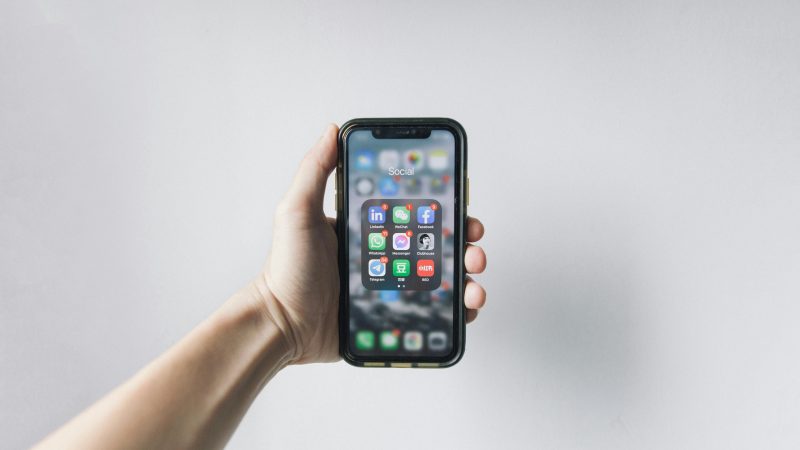The Meaning Behind Left Hand Itching: Myths, Superstitions, and Scientific Explanations

Throughout history, human beings have tried to make sense of the world around them through various beliefs, superstitions, and cultural practices. One such intriguing phenomenon is the itching of the left hand. For centuries, people from different cultures have attributed specific meanings to this sensation, often linking it to luck, financial gain, or loss, and even to spiritual or mystical experiences. In this article, we will explore the various interpretations of left hand itching, ranging from folklore and superstitions to scientific explanations.
Historical and Cultural Perspectives
The interpretation of left hand itching varies significantly across different cultures and historical contexts. Here, we will delve into some of the most notable beliefs and traditions associated with this phenomenon.
Western Superstitions
In Western cultures, the itching of the hands has been widely associated with financial matters. This belief is deeply rooted in folklore and has been passed down through generations.
- Left Hand Itching: Traditionally, an itching left hand is considered a sign that money is coming your way. This could mean receiving unexpected income, such as a windfall, inheritance, or winning a lottery. The idea is that the left hand is receptive, symbolizing incoming wealth.
- Right Hand Itching: Conversely, an itching right hand is often believed to indicate that money will soon leave your possession. This might involve paying bills, losing money, or incurring unexpected expenses.
These superstitions are not universally accepted and often vary regionally within Western cultures. However, they remain popular and are part of the everyday vernacular for many.
Eastern Beliefs
In Eastern cultures, particularly in India, the itching of the hands carries different connotations and is often linked to spiritual or karmic interpretations.
- Indian Superstitions: In Indian culture, the meaning of hand itching can depend on the gender of the person experiencing it. For men, an itching left hand is usually considered a bad omen, suggesting that money will be lost. For women, it is often seen as a positive sign, indicating that financial gains are on the horizon.
- Astrology and Palmistry: In Indian astrology and palmistry, the left hand is associated with the lunar energy (Shakti), which is receptive and nurturing. Itching in the left hand can be interpreted as a signal from the divine or a shift in one’s energetic state, potentially indicating upcoming changes in fortune or karma.
African and Caribbean Beliefs
In various African and Caribbean cultures, hand itching is also laden with meaning, often tied to ancestral wisdom and spiritual practices.
- African Traditions: Many African cultures believe that an itching left hand signifies that you will soon receive money or gifts. This belief is often integrated into broader practices of divination and spiritual communication with ancestors.
- Caribbean Folklore: In Caribbean folklore, particularly in islands like Jamaica, an itching left hand is similarly associated with receiving money. However, the specific details and interpretations can vary from one island to another.
Scientific Explanations
While cultural and superstitious beliefs provide fascinating insights into how different societies interpret left hand itching, modern science offers alternative explanations grounded in dermatology and neurology.
Dermatological Causes
From a medical perspective, itching in the hands can be attributed to several dermatological conditions:
- Dry Skin: One of the most common causes of itching is dry skin, which can result from environmental factors, such as cold weather or low humidity, and personal habits, like frequent hand washing.
- Dermatitis: Conditions like eczema or contact dermatitis can cause itching and irritation. These conditions may result from allergies, irritants, or genetic predisposition.
- Psoriasis: Psoriasis is a chronic skin condition characterized by red, itchy, and scaly patches. It can affect various parts of the body, including the hands, leading to persistent itching.
- Infections: Fungal or bacterial infections can also cause itching. For instance, athlete’s foot, caused by a fungal infection, can spread to the hands, resulting in an itchy sensation.
Neurological Factors
Neurological explanations for itching involve the nervous system and how the brain processes sensory information:
- Neuropathy: Peripheral neuropathy, which involves damage to the peripheral nerves, can cause itching, tingling, or numbness in the hands. This condition is often associated with diabetes, infections, or injuries.
- Psychogenic Itching: Sometimes, itching can be psychogenic, meaning it is caused by psychological factors. Stress, anxiety, and other mental health conditions can manifest physically, leading to sensations like itching without an underlying dermatological cause.
- Somatosensory Cortex: The somatosensory cortex in the brain is responsible for processing sensory information from different parts of the body. Any disruptions or miscommunications in this area can result in sensations like itching, even in the absence of external stimuli.
The Intersection of Belief and Biology
While scientific explanations provide clarity on the physiological causes of itching, the persistent belief in superstitions and cultural interpretations suggests a deeper psychological and social dimension. The intersection of belief and biology can be understood through the following perspectives:
Placebo Effect
The placebo effect demonstrates how beliefs and expectations can influence physical sensations and outcomes. If someone firmly believes that an itching left hand signifies incoming money, this expectation can create a psychological state of anticipation and positive thinking, which might indirectly influence their behavior and potentially lead to financial gains.
Psychosomatic Responses
Psychosomatic responses occur when psychological factors cause or exacerbate physical symptoms. Stress and anxiety about financial matters, for example, can manifest as physical symptoms like hand itching. Conversely, positive anticipation of financial gain can lead to heightened awareness of bodily sensations, including itching.
Cultural Reinforcement
Cultural reinforcement plays a significant role in maintaining and perpetuating beliefs about left hand itching. When a community or society collectively endorses a superstition, individuals are more likely to experience and interpret physical sensations in line with those beliefs. This collective reinforcement can create a self-fulfilling prophecy, where the belief in financial gain associated with itching hands encourages behaviors that lead to actual financial gain.
Personal Anecdotes and Experiences
Personal anecdotes and experiences often shape our understanding and belief in superstitions. Stories passed down through generations or shared within communities can reinforce the significance of left hand itching. Here are a few examples:
- Family Stories: Many people have family stories about grandparents or parents who experienced left hand itching followed by unexpected financial gains. These stories become part of the family lore, reinforcing the belief in the superstition.
- Personal Experiences: Individuals who experience left hand itching and subsequently receive money are likely to attribute the itching to the financial gain, further strengthening their belief in the superstition. This personal validation reinforces the cultural narrative.
- Community Beliefs: Within communities, shared beliefs and experiences create a collective consciousness that perpetuates superstitions. Community members who experience left hand itching and financial gains share their stories, reinforcing the belief for others.
Navigating Beliefs and Scientific Understanding
Balancing belief in cultural superstitions and scientific understanding can be challenging. Here are some ways to navigate this complex interplay:
Embracing Cultural Heritage
For many, cultural superstitions and beliefs are an integral part of their heritage. Embracing these beliefs can provide a sense of connection to one’s roots and community. Recognizing the value of cultural narratives can enrich personal and collective identities.
Integrating Scientific Knowledge
While cultural beliefs are valuable, integrating scientific knowledge can provide a more comprehensive understanding of physical sensations. Awareness of dermatological and neurological explanations for itching can help individuals make informed decisions about their health.
Personal Interpretation
Ultimately, individuals must navigate their personal beliefs and experiences. Some may find comfort and meaning in superstitions, while others may prioritize scientific explanations. A balanced approach that respects both perspectives can lead to a richer understanding of one’s experiences.
Conclusion
The phenomenon of left hand itching is a fascinating interplay of cultural superstitions, psychological influences, and scientific explanations. Across different cultures and historical contexts, this sensation has been imbued with various meanings, often linked to financial gain or loss. While modern science provides clear dermatological and neurological explanations for itching, the enduring belief in superstitions reflects the powerful role of cultural narratives and psychological factors in shaping our experiences.
Understanding the meaning behind left hand itching involves appreciating the richness of cultural traditions and the insights of scientific inquiry. By navigating these diverse perspectives, individuals can gain a deeper understanding of their sensations and experiences, enriching their connection to both their cultural heritage and the scientific world.





